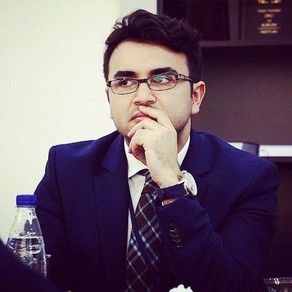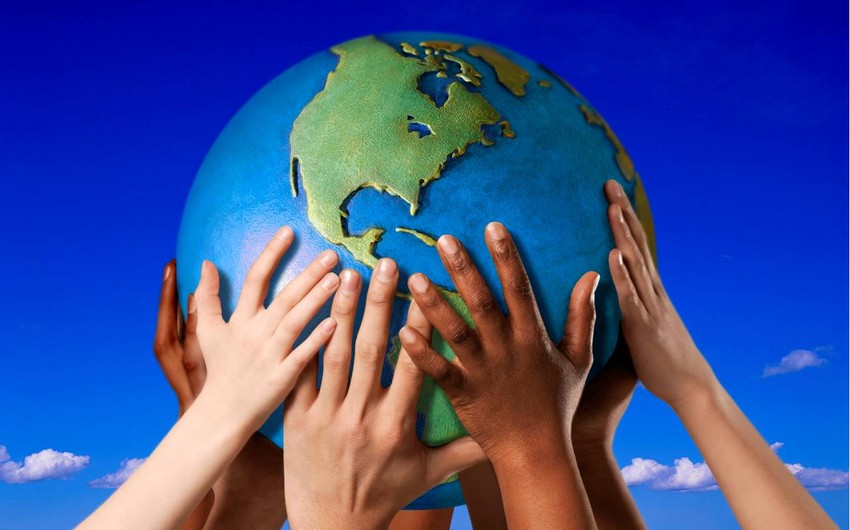Baku. 2 September. REPORT.AZ/ The changing of our place of residence and the migration of human beings are natural processes in a world where everything is in a state of flux. Concepts surrounding such changes are constantly evolving and getting ‘a new face’. Therefore, each time we move to a fresh place of residence or adopt a new culture, we are obliged to change and renew our feelings, emotions, hopes and fears.
But is the attitude toward migrants also altering? The answer is definitely yes! The changes emanating from our political, economic and social situation either result in the development of tolerant or intolerant attitudes toward migrants. There are three ways in which an alien culture can be dealt with – it can be accepted and conserved, assimilated, or isolated. If it is taken into consideration that each migrant has a culture, a new multicultural society is formed one way or another.
The process to which I refer dates back to antiquity. We must therefore ask ourselves what created such recent concepts as ‘multiculturalism’ and the ‘multicultural society’? In fact, the history of developing such ideas is closely associated with the recent past.
From the early 1950s to the late 1970s, western countries pursued an Open Door policy to overcome the post-war economic crisis. This policy ensured a flow of migrants, providing a cheap labour force that, in turn, would help pull these states out of the severe economic crisis they were experiencing. The most vivid examples of this are the massive migrations from Turkey to Germany, and from North Africa to France. Undoubtedly, any alien brings their culture. Against the backdrop of political and socio-economic processes, politicians developed the new concept of multiculturalism – where lots of cultures coexist. To be more precise, this is a humane policy that recognises the cultural rights of those from various nations within the borders of one country. This successfully represented a reality that emanates from necessity, whereby politicians reflect the requirements of society.
Time passed, and the euphoria started to recede. Recently, the situation in the West has reached unprecedented levels. Migration has become uncontrolled, and political statements have dubbed multiculturalism as being both unsuccessful and unusable.
Some representatives of European political parties have stressed in their statements that if there were no obligations due to the International Convention on Human Rights, Geneva Convention or European Convention, then the migration crisis would be easily solved. Therefore, Western states face a paradox that remains very difficult to resolve. On one side, there are human rights, which are regarded as having supreme value, and there is multiculturalism, considered a dangerous policy by politicians, on the other hand. Max Frisch, the famous Swedish author, described this dilemma saying: “We asked for workers. We got people instead.”
No matter how much it is scorned, rejected, or considered dangerous, the concept of a multicultural society in most western states is a reality that is simply impossible to ignore.
As a researcher that is deeply interested in multiculturalism and has lived in the West, I have always been concerned by one question – why does my own country of Azerbaijan, which is home to a great diversity of cultures, not regard multiculturalism as being dangerous, and even declares to be a state policy? This has always been paradoxical to me, since there are various national minorities living in Azerbaijan, which means there are myriad different cultures. Consequently, an Azerbaijani model of multiculturalism, which ensures the protection and preservation of diverse cultures and prevents assimilation, is different from the European or Western model, which equates multiculturalism with the migration policy. I believe that Western countries should study and adopt the Azerbaijani model of multiculturalism, which takes into account the sensitivities of each culture and their relationship with the surrounding population.
My conclusion is that no person should ever be regarded in solely economic terms, as we have no moral or legal right to do so on a humanitarian level. Even if the multiculturalism concept, which was created from public necessity, is politically rejected, it will continue to be a social reality. In other words, any anti-multiculturalism policy is doomed to failure.
Ravan Hasanov - Senior Advisor, Baku International Multiculturalism Centre



 https://static.report.az/photo/ec521473-cded-42c4-a71e-70647c562097.jpg
https://static.report.az/photo/ec521473-cded-42c4-a71e-70647c562097.jpg

